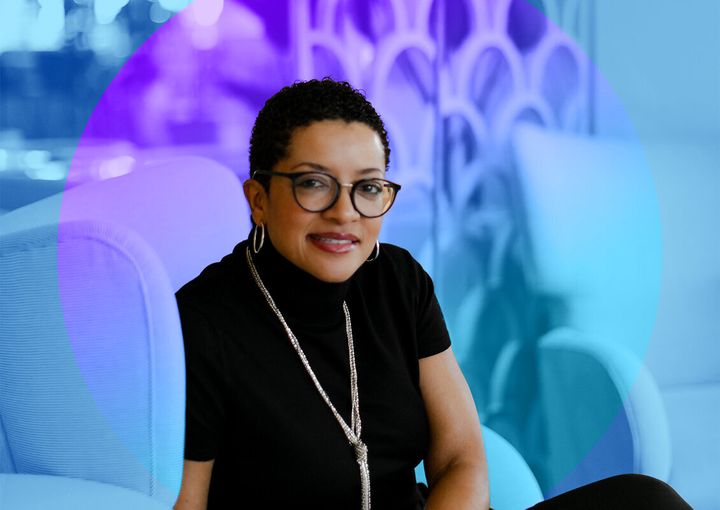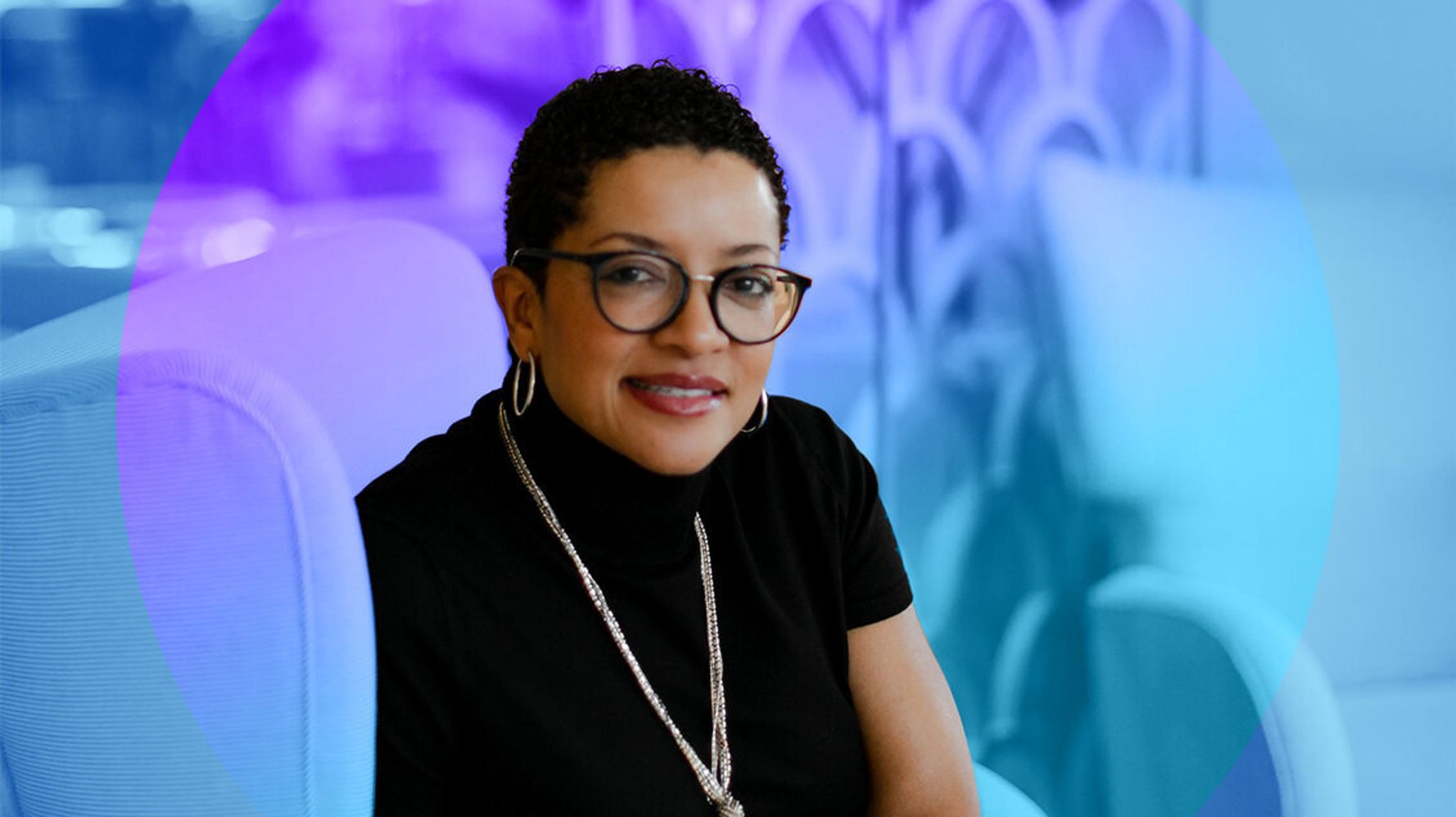[ad_1]
This article is part of a series paid for by Secret Deodorant as they launch their “Not the First” campaign. To learn more about how Secret Deodorant is celebrating women challenging the status quo, watch their video above.
If there was a league of superheroes dedicated to diversity and inclusion reform in corporate America, Pamela Culpepper would be the ringleader.
With over 25 years of D&I work under her belt in executive leadership roles across HR, talent management and organizational development, she is particularly qualified to examine the D&I landscape in corporate America.
As a woman of color, Culpepper’s perspective is one rooted in personal understanding and hyper-awareness. And as an expert in the field, she has visibility of not just the professional women facing adversity and exclusion, but the many layers of identity that color their experiences, such as sexuality, religion, ethnicity and civil status.
The corporate veteran follows in the footsteps of business women before her who resolved to start the very first conversations and initiatives around workplace diversity and inclusion. That’s why, in partnership with Secret Deodorant, we’re profiling Culpepper as a woman who embodies incredible strength and never sweats her critics.
Culpepper has not only dedicated her career to carving out new roads of communication for the next generation of D&I torchbearers, but in 2019, she became a founding partner of Have Her Back, a female-owned and -operated culture consultancy that works with businesses to advance equity for women. She works alongside co-founders Caroline Dettman and Erin Gallagher to transform an organization’s D&I intentions into actions.
Culpepper’s accomplishments are neither small nor few, which is why we called her up to get her thoughts on how leaders should think about maintaining sincerity in their corporate D&I advancements for women of all generations.

This interview has been edited for length and clarity.
How did you get involved with D&I work in the first place, and what sort of personal passions have fueled your career path?
I was once asked by an executive whether I found D&I or whether D&I found me. The answer is that it actually found me.
It was hard for me to be in any role that I didn’t have to address the challenges of being a woman, or being a person of color, or being a mother, or being someone who was in a position of influence surrounded by people who didn’t look like me or have the same experiences as me.
When it came to empowering women and giving them a voice that they didn’t think they had, or being a representative of the voice to the people that they had no access to, my purpose was helping them take power back that they had given up, for whatever reason. Oftentimes we’re fed steady diets of, “You’re not ready, yet. You need two or three more experiences,” or “I’m not sure you can be as dedicated as you previously were before maternity.”
These were the stories that a lot of leaders, male leaders in particular, were feeding themselves. These were stories that they created without ever having talked to a woman about what her career trajectory was or what she wanted it to be. And so changing the narrative around these stories is important. Creating new narratives around being mothers and being executives and having spouses can be incredibly complicated with very complex intersections, especially if you layer other identities on top of that: being a person of color or being LGBTQ+.
What type of work do you hope to accomplish with HHB?
Have Her Back’s mission is to help brave companies tackle gender equity differently. Our main intent is to help companies with good intentions actually turn those into intentional actions. Every company that is prominent in this space right now is at the precipice of breakthrough. And that’s the hardest place for them to be because that’s where the hard work is. You can put more money into D&I and you can put more women on the front line, but the intentionality and the sustainability of those actions is where there’s lots of vulnerability.
What does a healthy corporate landscape look like in D&I?
For women to be successful, there cannot just be a verbal commitment or a few instances of making changes in the organization. There has to be mindset and behavioral changes that will support their success. That’s what we focus on.
You’ve said there’s a difference between action and intention when it comes to companies trying to do the right thing. How does motivation come into play?
I think culture is demanding that companies do something different. And so people are finding power and strength in numbers and they’re less afraid to talk about the things that are challenging them, but they also have new words to talk about the things that are challenging them. So a woman, for instance, doesn’t just have to say, “It’s important that I have the right environment to be an effective mother.” They can also say, “It’s important that caregivers are given the right environment. So, I don’t just need for my maternity leave to be extended, I need for my spouse’s paternity leave to be recognized as a viable part of the caregiving experience.
Think of it as caregiver bias. If you just extend maternity leave, what is implied is that you’re still expecting me to be the primary source of care for my child, when in fact my partner wants to share the load and will need support to do so as well.”
Taking a look forward at the industry, are you optimistic about where we’re headed?
I think it’s one of the scariest times to be doing this work. Scary in the sense that there is a bit of fatigue settling in around gender work. There is already fatigue settling in around D&I and so there is a need to energize and repurpose the work in such a way that it creates new and different outcomes. Companies that are ready to go beyond the status quo and set new standards for their industry are the companies that are asking for our help. They are calling us, versus us calling them. What I believe about those companies is that they are creating momentum within their organization not only for drawing women and people of color to them, but also to be the example for the rest of the world, or at a minimum, the industries in which they operate.
Is there a philosophy or notion that you feel strongly about in considering the legacy of your work?
I believe with all of my being that men and women have to be on the same side of this issue — mentally and emotionally — for transformational shifts to occur. I hope to inspire future generations of women to be less fearful of outcomes and deem themselves worthy of the fight.
Watch the video below to see how empowered women around the world have partnered with Secret Deodorant to celebrate those who boldly challenge the status quo, push through barriers and stand up for what they believe in, without “sweating” the obstacles that may come their way.
Through the years, Secret Deodorant has proudly supported women’s advancement and equality. The “All Strength, No Sweat” campaign is a continuation of the brand’s commitment to women, celebrating those who boldly challenge the status quo, push through barriers and stand up for what they believe in, without “sweating” the obstacles that may come their way. Secret challenges women everywhere to be all strength, no sweat.
Calling all HuffPost superfans!
Sign up for membership to become a founding member and help shape HuffPost’s next chapter
[ad_2]
Source link

